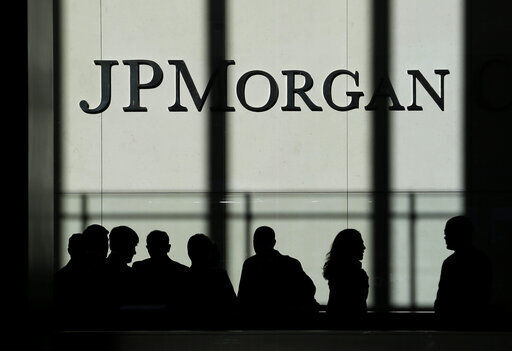NEW YORK — JPMorgan Chase said its second quarter profits more than doubled from a year ago — a reflection of the improving global economy and fewer bad loans on its balance sheet. But the bank’s revenues fell noticeably in the quarter, due partially to the fact that interest rates have fallen sharply the last three months.
The nation’s biggest bank by assets said today that it earned $11.95 billion, or $3.78 per share, up from the a profit of $4.69 billion, or $1.38 a share, in the same period a year ago. The results were well above Wall Street’s forecast for earnings of $3.20 a share this quarter, according to FactSet.
JPMorgan is the first of the big Wall Street banks to report their results this week, and expectations are high. Banks have tens of billions of dollars in loans they set aside during the pandemic that they are now moving back onto the “good” side of their balance sheets. These loan-loss reserve releases as they are known, have tacked on big gains to banks’ profits in the last two quarters.
The improving balance sheets have allowed banks to increase their payouts to investors. JPMorgan raised its quarterly dividend to $1 per share late last month, and plans to buy back $30 billion in stock from investors this year.
The New York-based bank released $2.29 billion from its loan-loss reserves this quarter, down from the $4.16 billion the bank released in the first quarter. Most of the release came from the bank’s consumer division, particularly credit cards.
While the bank’s balance sheet improved, the bank’s revenues did not. Firmwide revenues at JPMorgan were $31.4 billion in the quarter, down 7% from a year earlier.
Part of the reason for the revenue decline was interest rates. Bond yields have steadily fallen the last three months as inflation worries have dissipated. Those declines impact banks’ abilities to charge more for loans to borrowers.
JPMorgan’s investment bank was also a drag on the firm’s results, reporting a 19% decline in revenues and 9% decline in profits in the quarter compared to a year earlier. A significant part of that decline was a fall in trading revenue, particularly in the bond market, the bank said.


